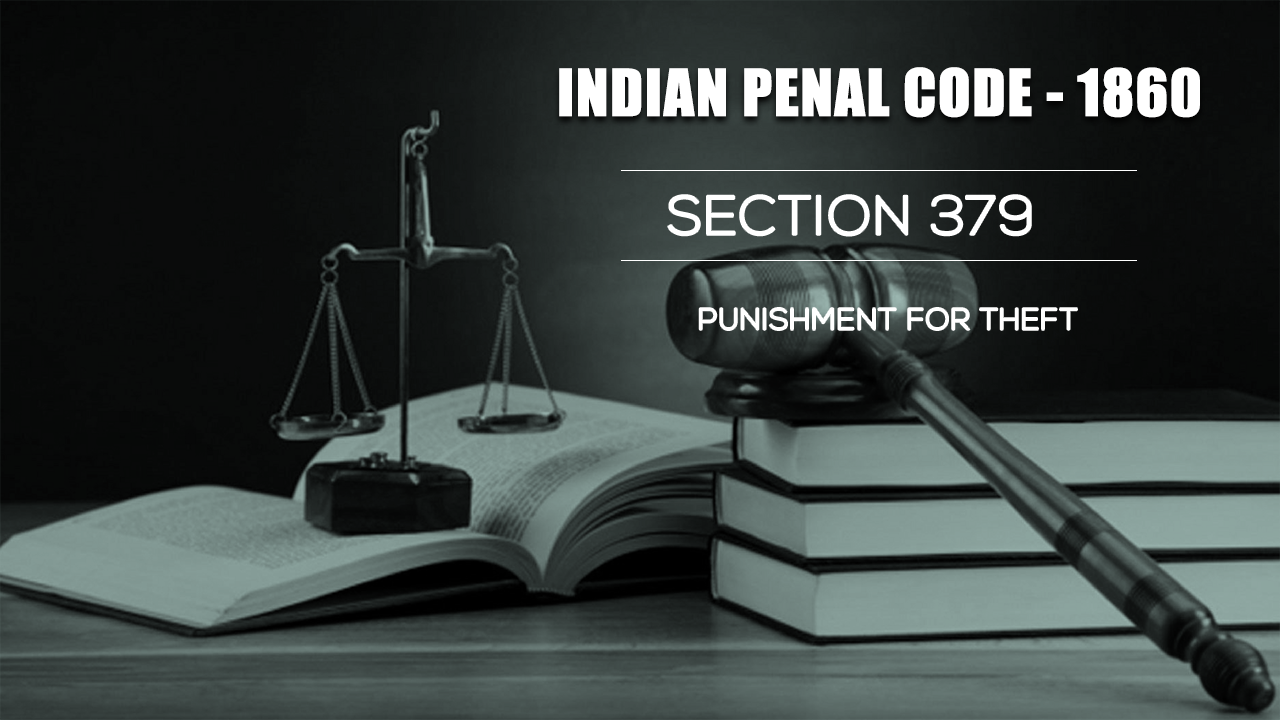
Overview: Section 378 defines the offence of Theft, whereas, section 379 IPC prescribes punishment for theft.
Meaning of Theft: Theft, as defined under section 378 is the “dishonest removal and taking of movable property out of the possession of any person without his consent.” It is an offence against possession and not against ownership.
Ingredients of
Section 379 IPC: To constitute
the offence of theft, the following ingredients are required –
1. The accused must have a dishonest intention to
take the property.
2. The property must be moveable
3. The property must be taken out of the
possession of another person, resulting in wrongful gain by one and wrongful
loss to another;
4. The property must be moved in order to such
taking, which results in obtaining property by deception; and
5. Taking must be without that person’s consent (either
express or implied).
Punishment for Theft under Section 379 IPC: This section provides for punishment to any person who commits theft. It says that he shall be punished with imprisonment of either description for a term which may extend to three years, or with fine, or with both.
Some
exceptions of Section 379 IPC:
1. Theft
of electricity is not a theft of movable property within the ambit of section
378 of the IPC. However, it is punishable under section 135 of the Electricity
Act 2003.
2. The
human body, whether living or dead (except mummified or dead bodies preserved
in scientific institutions or medical colleges), is not subject to theft.
1. Tanay
takes away a moveable property out of Rahul’s possession without his consent,
Tanay is said to have committed the offence of theft and shall be liable for
punishment under the purview of sec. 379 Indian Penal Code.
2. Neha,
while travelling on bus tears the seat covers when the conductor demanded a fare.
Here Neha X is guilty of committing mischief. The reason being paying for the
bus fare was the implied consent of the person when he boarded the bus. Not
paying the fare and damaging property that causes loss to another person makes
the Neha liable for committing mischief
and not theft.
| Offence | Punishment | Cognizance | Bail | Triable By |
|---|---|---|---|---|
| Punishment for theft | 3 Years or Fine or Both | Cognizable | Non-Bailable | Any Magistrate |
| Offence | Punishment for theft |
|---|---|
| Punishment | 3 Years or Fine or Both |
| Cognizance | Cognizable |
| Bail | Non-Bailable |
| Triable By | Any Magistrate |
Regd Office: Dwarka Sector -30, New Delhi-110075 (DELHI)
Corporate Office: Shaheen Bagh, Kalindikunj Road, New Delhi-110025 (DELHI)
Get Instant Quotation over whatsapp
8882742187


